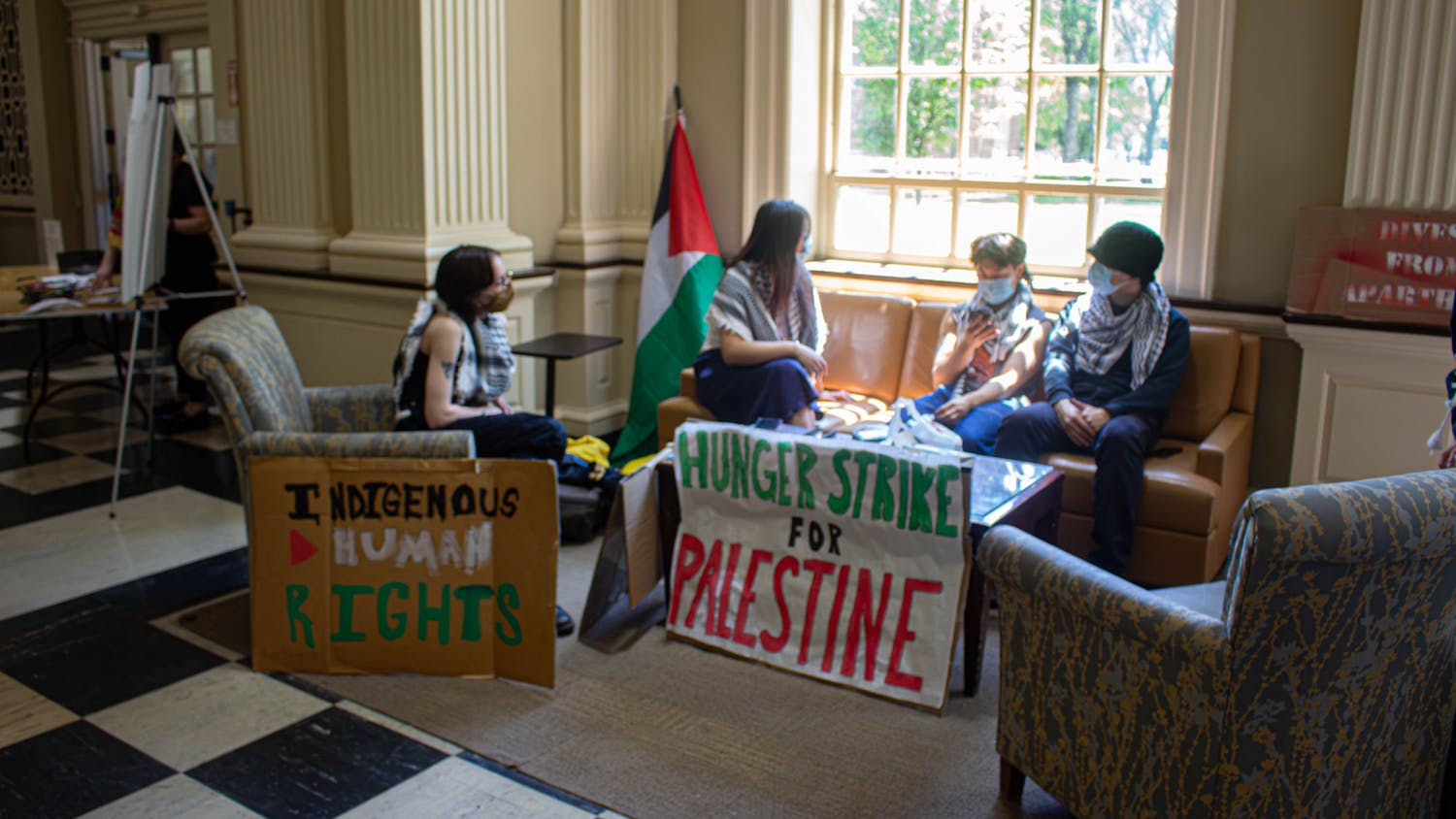Are the students offended by the fact that Vice President Al Gore has admitted to smoking marijuana in the 1960s? Or that Texas Governor George W. Bush was arrested for stealing a Christmas wreath at Yale as the head of a notoriously rowdy fraternity? Should these past actions make a difference in Tuesday's presidential election?
Apparently not.
The overwhelming majority of Dartmouth students interviewed by The Dartmouth are enormously forgiving of presidential candidates' wild college antics.
"What pertains to their election campaign should have to do with how well they are going to do in serving the United States, and not have anything to do with what they have done in the past or any aspect of their personal life," said Joanne Sprague '04.
Sprague said candidates should be judged solely on what they would do in office.
"I'm a different person than I was in high school so why should I expect [the candidates] to be the same as they were in college? It doesn't have a bearing on how they're gong to conduct themselves in the White House," Sprague said.
Like Sprague, Tom Avery '01 said he feels the way candidates behave during college is not a reflection of how responsible they will be in office.
Erica Lin '03 said, "They weren't presidents then, so it's not something you can really base their [future] actions on."
Some students however, do weigh candidates' behavior in making vote choices, however to varying degrees.
Edward Lee '04 said youthful behavior can provide insight into a candidate's character. "[Their indiscretions] affect me, but we shouldn't make a big deal out of [them]," Lee said.
Collin O'Mara '01, who coordinated John McCain's efforts at Dartmouth during the primary, said he definitely feels candidates should be judged on their collegiate and young adult actions, and will be taking those actions into consideration when voting.
He said young adults are able to vote and serve in the military and should thus be accountable for their actions.
Additionally, he said he feels it is hypocritical for politicians to be able to write laws but then not feel they must follow them.
Bob Gienko '01, currently himself a candidate for the New Hampshire State Legislature, said, "I think we should [be forgiving]. I think we need to look and see what they did, obviously, and I think we need to see if it's a pattern throughout life or if it's a one time deal."
Gienko said voters should remember that "everyone makes mistakes."
Dartmouth students believe that what is truly significant about a presidential candidate is general demeanor and character traits, specific stances on issues and public policy, and efficacy in past offices.
"I think they should be judged on the issues and whether the person can be a competent decision-maker as president," Jon Webster '04 said.
However, Webster added "I think their character plays a role: whether you find the person to be trustworthy, and if they truly believe in what they are saying."
Mark Davis '03 said he judges candidates on their current actions. "I believe there is a statute of limitations and that people don't have to be perfect for their whole lives," Davis said.
"Youthful indiscretions" don't necessarily reflect on the character of somebody who is old enough to be running for president," Davis said.
With a climate of past actions making news -- like the weekend flap over Bush's 1976 DUI arrest -- do current Dartmouth students interested in one day pursuing political careers censor their behavior in order to keep open future career opportunities?
Gienko said he is focused on the present. "Obviously I'm not trying to get arrested but I'm not planning for 20 years down the road."
Gienko said he feels the majority of students act with attention to what is right or wrong, but not necessarily what will affect future political careers.
"Students realize that a big mistake would hurt them later but they're not trying to plan their lives around future goals," Gienko said.
"Future career opportunities do not particularly affect my behavior. My personal life and my social life are my own," Sprague said.
"I think that everybody should be given a second chance, and what somebody did in their college years and immediately thereafter is not relevant to who they are as a person 20 or 30 years later. Everybody changes," Webster said.



